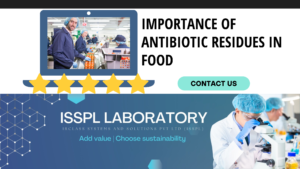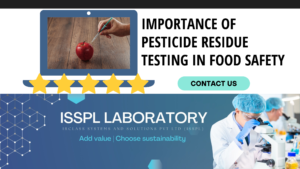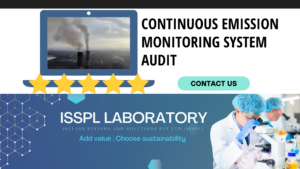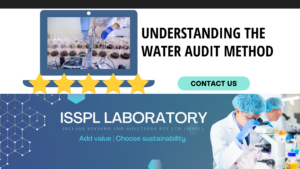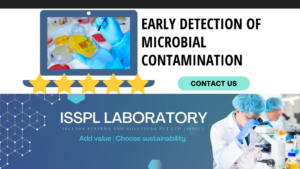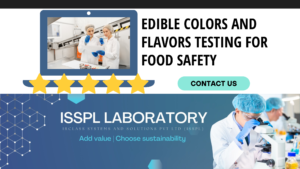An Overview by Team ISSPL - Analytical Testing Laboratory in India
ToggleNaturally occurring toxins are harmful. They are secondary metabolites that may or may not be produced from plants. One can find them in marine creatures as well. The Naturally Occurring Toxins (NOTs) are chemicals found in living things.
It includes plants, fungi, bacteria, algae, and animals. The natural toxins do not harm the organisms from where they originate. However, the toxins are dangerous for those consuming the item. Food with natural toxins can impact human body organs adversely. The toxins enter the food supply, and thus, it needs proper protective steps to prevent the mix.
The toxins can be found in fruits, mushrooms, and legumes. One can also find them in the plant-based beverages. The toxicity creates adverse effects on humans and animals in the long run. The chemical structures of these toxins make them harmful in more ways than one.
Food and natural toxins – Obtain an overview
Natural toxins can originate from plants, marine creatures, or fungi. The natural toxins of fungal origin include mushroom toxins. (death cap mushroom, aflatoxins, etc.) The plant toxins are cyanogenic glycosides. It includes hydrogen cyanide which is present in bamboo shoots and raw cassava. One can also find amygdalin in pear and apple seeds and canned fruits.
Other examples of plant-based natural toxins include – glycoalkaloids in potatoes, lectins in legumes, furocoumarins, oxalic acid in rhubarb, and enzyme inhibitors. The marine toxin components include mercury accumulation. It is found in fish like sharks and swordfish.
Consuming marine foods with these natural toxins is adversely harmful to pregnant women and children. Why? Because mercury can impact cognitive development. Examples of natural toxins –
a) Aflatoxins
b) Mycotoxins
c) Patulin
d) Amygdalin
What makes the natural toxins dangerous?
Natural toxins in food need the best testing solution and treatment. These toxin components can create acute and chronic health impacts. It can be fatal if consumed in large quantities for several years. The adverse symptoms of the natural toxins need careful handling.
It can be anything from mild gastrointestinal abnormality, respiratory issues, neurological diseases to fatality. The harmful effects of toxin consumption are more dangerous for children and the elderly. The symptoms can show in a short span in the case of marine toxins occurring in marine fishes like shellfish. Chronic toxicity is dangerous and can originate from toxins like alkaloids.
Long-term exposure to natural toxins can impose critical health consequences and impact the immune, reproductive, or nervous systems. The toxin exposure can also lead to cancer and organ damage in the long run.
Testing and regulatory compliance – Know the essentials
WHO (World Health Organization) in association with FAO has specified norms and regulations to enhance testing and awareness. The regulatory bodies define the regulations for assessing the risks of natural toxins to human bodies through contamination.
Risk assessments of the unwanted natural toxins in food must meet intergovernmental standards. The global norms set for food define the maximum limits of the toxin components in the food. The assessment helps prevent contamination and boosts risk management. For instance, JECFA has set a tolerable intake level for natural toxins.
Manufacturers and suppliers in the food and beverage industry must consider the vital aspects and abide by the norms. It is integral to follow the regulations and remain compliant. The proactive assessment steps are integral and one needs them to protect people from the adverse effects of natural toxins. Even if the food containing the natural toxin is consumed in low proportions, it requires critical assessment and review.
WHO encourages the national authorities to check and identify the levels of the natural toxins. The amount should be as low as possible and meet the national and international levels, conditions, requisites, and legislation.
Testing solutions for natural toxins – NOTS test
The manufacturers and suppliers need to depend on advanced testing services. The top-notch testing services help detect natural toxins in various food samples. They help you meet the norms and check the essentials under FSSAI guidelines.
FSSAI defines the maximum upper limits for the natural toxic components like – Agaric acid, Hydrocyanic acid, Hypericine, Saffrole, Aflatoxin B1, B2, G1, G2, Ochratoxin A, Deoxynivalenol and Patulin. It is integral to perform analysis of natural toxins in diverse food groups like cereal products, spices, milk and dairy products, fruits and vegetables, etc.
The new-age and advanced analytical techniques like ELISA (Enzyme-Linked Immunosorbent Assay), HPLC, and Ultra-High-Performance Liquid Chromatography Mass Spectrometry (LC-MSMS) help deliver accurate and rapid analysis of the potential natural toxins in food substances.
Prime benefits of NOTS testing –
- The testing helps ensure the product is lab-certified and ideal for consumption
- The test result helps the products meet the regulatory standards and norms
- The testing steps check if the products abide by the permissible limits of NOTS
- A proactive approach helps avoid the chances of contamination in food products
- The testing techniques help you avoid the chances of legal issues and penalties for toxin spread
The role of the laboratory – What makes it an integral need?
a) The testing labs with state-of-the-art equipment like GC, HPLCs, GCMSMS, FTIR, ELISA, HR-MS, GC-MS, HPLC, LC-MS/MS, ICP-MS, Real-time PCR and NMR systems deliver accurate testing results.
b) The swift testing techniques facilitate the process and ensure a proactive solution for the manufacturers.
c) Meet the norms defined by regulatory bodies by avoiding food scares and legal obligations with the help of the best testing experts at the lab.
d) Obtain accurate results on toxin analysis with expert advice on the testing schemes, on-site checks for hygiene checks and allergens, labeling advisory solutions, and much more.
Closing note – Realize the role of the testing experts and laboratory
Regulatory bodies and private industries need to rely on the lab test reports to ensure the best industrial actions for the benefit of the consumers.
With the best testing facilities at the IRCLASS Systems and Solutions Pvt Ltd (ISSPL) laboratory, the top analytical testing service providers in India, ease the requirements to the next level. Obtain high-quality and reliable results for safety testing of food and make an informed choice.
